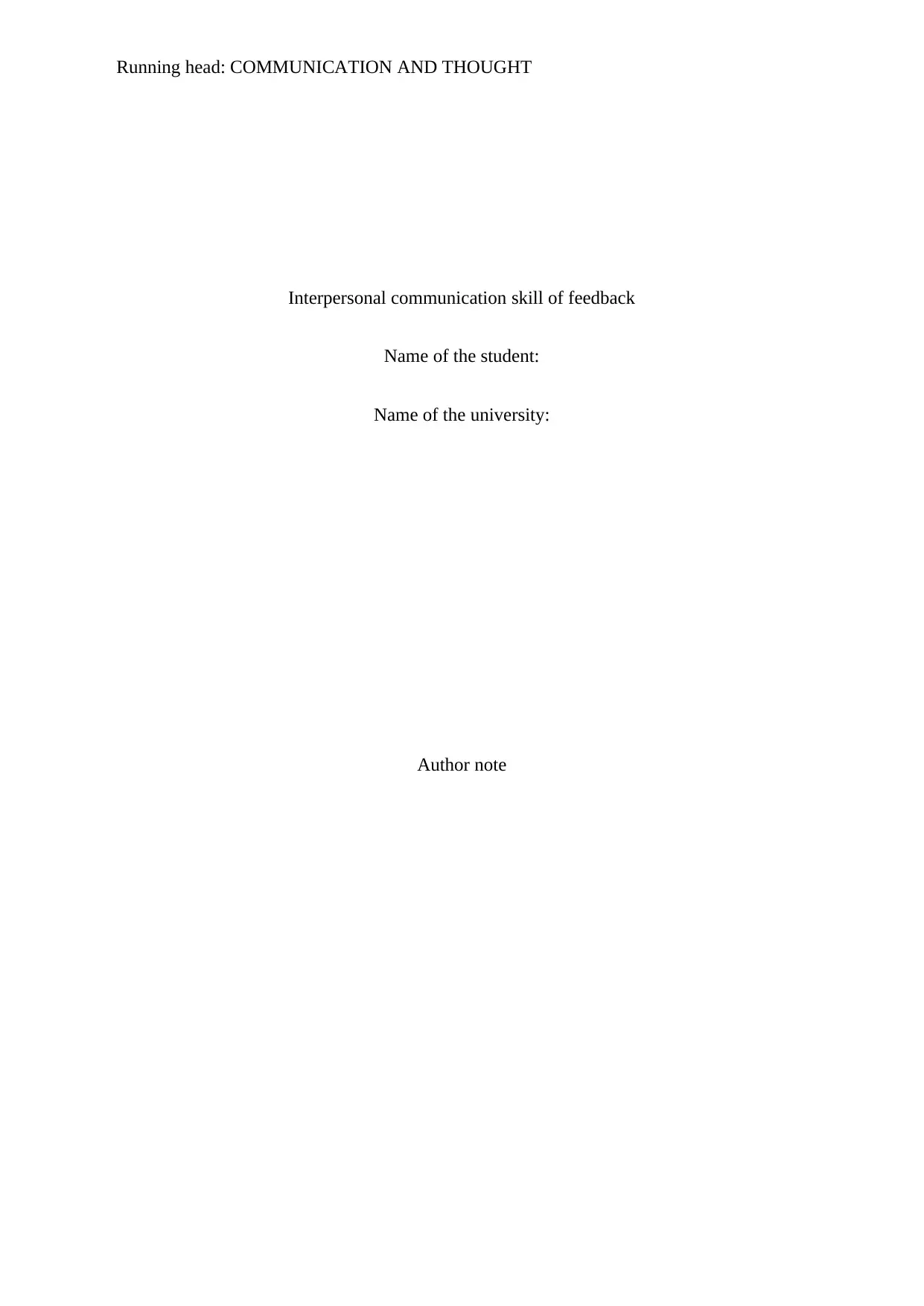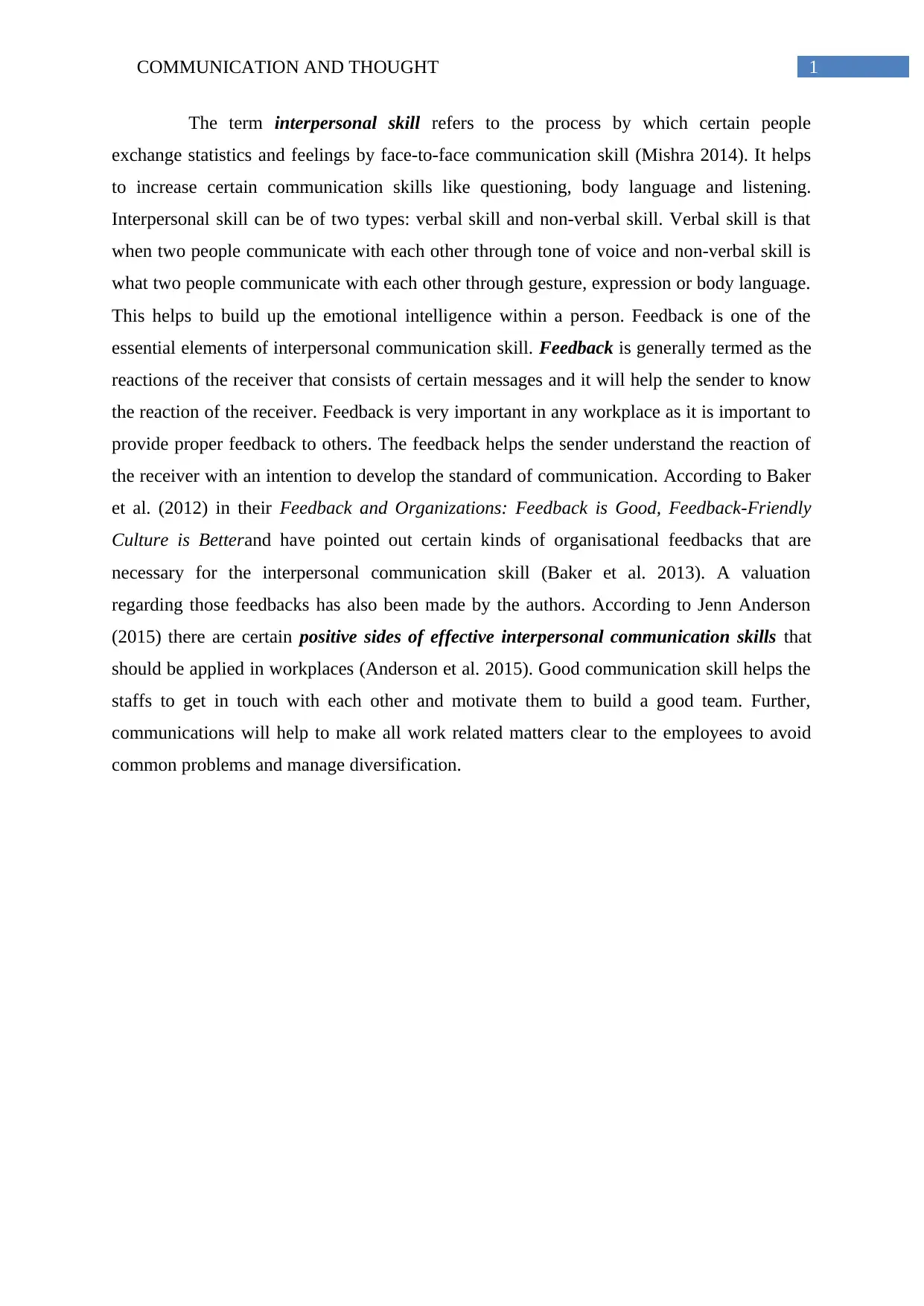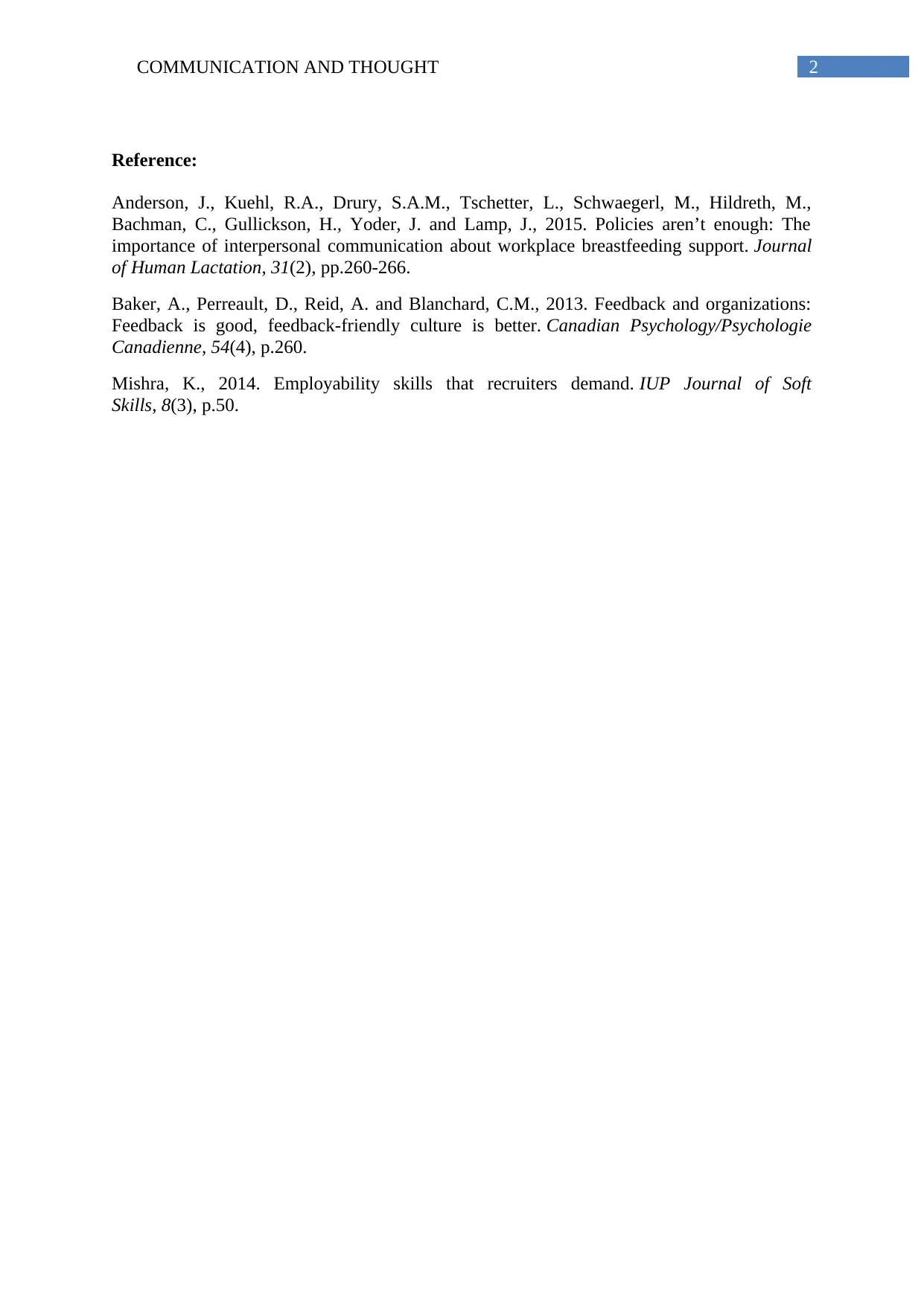Communication and Feedback: An Analysis of Interpersonal Skills
VerifiedAdded on 2021/04/16
|4
|482
|234
Report
AI Summary
This report examines the critical role of feedback in interpersonal communication, particularly within a workplace context. It begins by defining interpersonal communication and its components, including both verbal and non-verbal aspects, and highlighting the importance of feedback in gauging the receiver's understanding and reaction. The report references key research, such as Baker et al. (2013), which emphasizes the importance of a feedback-friendly organizational culture. It also incorporates insights from Jenn Anderson (2015) on the benefits of effective communication skills, such as improved teamwork and clarity in work-related matters. Overall, the report underscores how feedback enhances communication skills, promoting better understanding and efficiency in a professional environment. This analysis is valuable for understanding how to improve communication strategies and enhance workplace dynamics.
1 out of 4











![[object Object]](/_next/static/media/star-bottom.7253800d.svg)